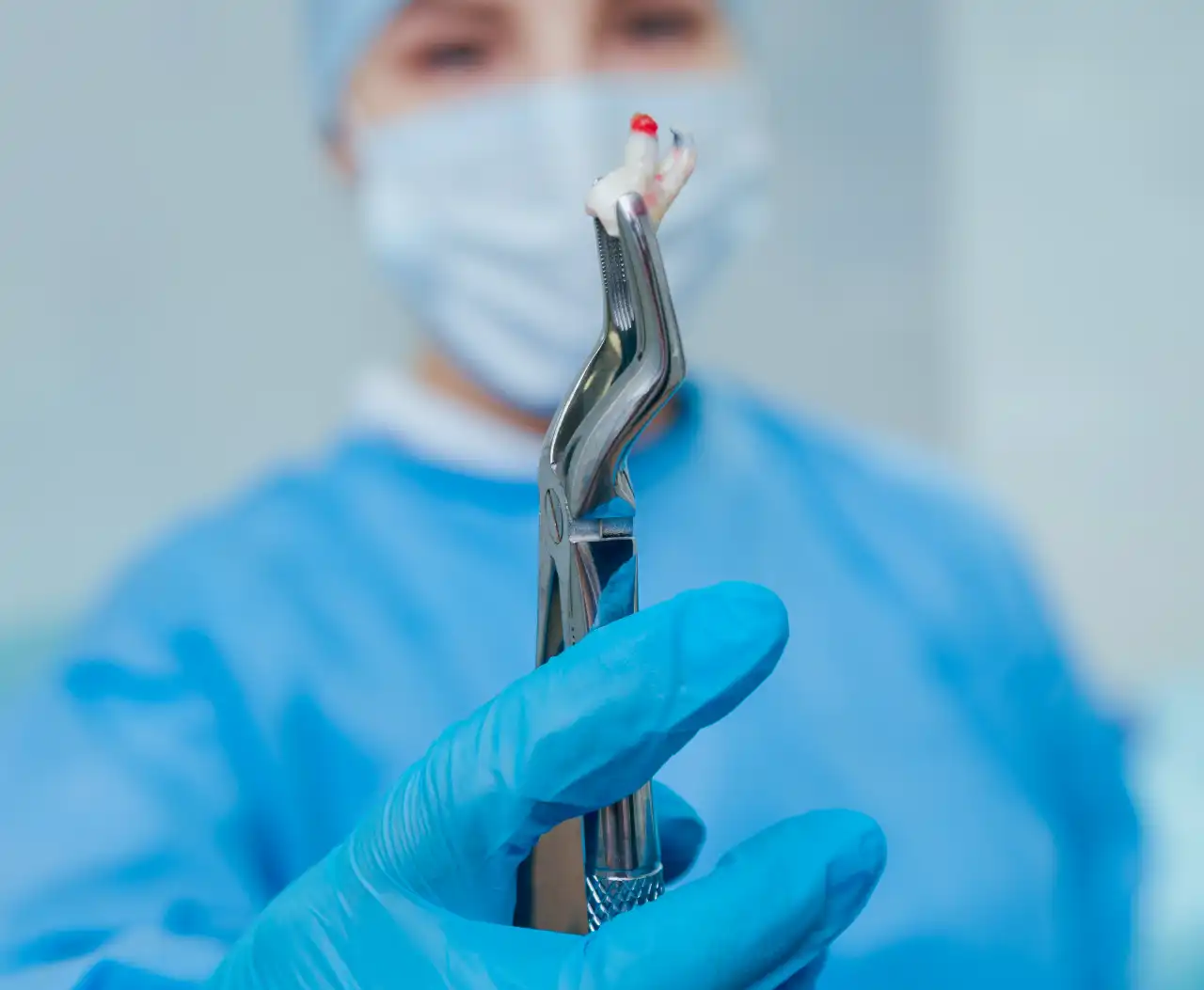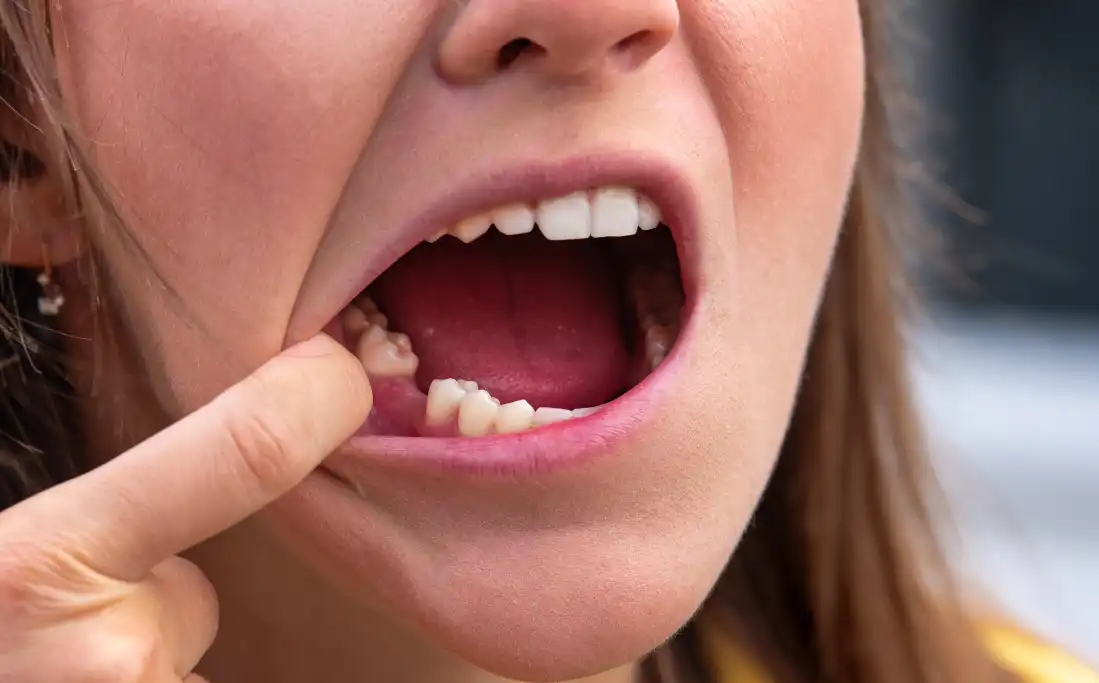Implant Treatment
What is Implant Treatment?
They are artificial tooth roots used to support missing teeth or existing teeth and help prevent jaw bone loss. People with missing teeth may experience some digestive problems in the future and withdraw from social life. To prevent these, correct treatment of tooth deficiencies is necessary for a more comfortable life.
Dental implants are a popular treatment option because they are more durable and permanent than other treatment methods to complete missing teeth, allowing the patient to use them like their original teeth. In short, implant treatments help to lead a more comfortable and healthy life in cases of missing teeth.


What is Tooth Extraction?
Tooth extraction is the surgical removal of the tooth from its socket called the socket in the bone. Tooth extraction can be done for more than one reason. The most common is when the tooth becomes untreatable due to trauma or decay. At the stage of tooth extraction, your doctor gives you local anesthesia and the procedure begins.
What Should Be Done After Tooth Extraction?
Hold the sterile pad placed on the extraction site by pressing firmly for at least 30 minutes. Do not eat or drink anything until the drowsiness is gone. Do not smoke for the first 24 hours. You should take the prescribed pain reliever before the drowsiness goes away. Do not consume hot foods and do not be in hot environments. Heat increases bleeding. Drinking with a straw, which reduces intraoral pressure and disrupts the clot, and smoking should be avoided.
Can Teeth Be Saved With Other Treatment Methods Without Extraction?
Before tooth extraction, temporary solutions can be applied to save the tooth, as well as canal or filling treatments. However, after a certain point, not only the tooth planned to be extracted, but also the adjacent teeth begin to be damaged. Patients experience severe pain and pain.
It is more correct to remove the tooth when it is no longer possible to save the tooth. After tooth extraction, the continuation of the treatment is provided according to the patient’s expectations and the physician’s decision.

Does My Mouth Have Swelling After Tooth Extraction?
Sensitivity and swelling may occur after tooth extraction. Sedation applied during the procedure reduces the complaints after the treatment. Swelling may take longer in cases where a large number of teeth are extracted, a root-shaped tooth is extracted or the patient already has an infection in the mouth. As a result, the swelling will go away after a few days if the patient follows the doctor’s instructions.
Do I Have Pain During Tooth Extraction?
Since sedation is applied during tooth extraction, the patient does not feel pain or pain. After tooth extraction, the patient may experience pain that decreases gradually for 2-3 days. It also depends on the situation of the case; If too many teeth have been extracted and the patient has severe inflammation in the mouth, this pain period may last up to 1 week.


What is 2O Age Tooth Extraction?
It is called the third molar. Wisdom teeth are permanent teeth in the back of your upper and lower jaws. Roots have a variety of shapes and numbers. If the wisdom tooth is impacted, surgical operation is required.
What is an Impacted Teeth?
Impacted teeth are teeth embedded in the jawbone of the tooth. Generally, wisdom teeth remain as impacted teeth. Patients consult a physician when they feel pain. impacted teeth are extracted.
Get Your Tooth On The Same Day!

20 Years Tooth Extraction
What should be the nutrition and oral care after wisdom tooth extraction?
- On the first day after the operation, mouthwash, rinsing and spitting should not be done.
- No smoking for 2 days.
- Warm, grain-free and soft foods should be consumed.
- Use the antiseptic mouthwash recommended by your doctor.
- If tooth extraction is performed with a surgical approach, apply ice application treatment at 5-minute intervals between 8-10 hours.
What Is Done For Bone Graft Applications?
Bone graft, also known as bone powder application, is a material used during implant surgery in case of bone loss and insufficiency. Bone grafting is performed under local anesthesia. With the graft application, the bone is made suitable for the implant. Therefore, the prosthesis stage becomes healthier.
What Is Teeth Grinding, Does It Only Happen While You Sleep?
Teeth grinding is the unconscious clenching of the teeth, usually at night. If the person clenches their teeth too much during this time, they may damage their teeth or disrupt their treatment. Teeth grinding is more common in patients who experience high levels of stress. There may also be some syndromic diseases that usually accompany teeth grinding.


Does Teeth Grinding Damage My Teeth, What Can Be Done for Its Treatment?
When teeth are unconsciously clenched at night, patients damage their teeth. Each tooth has its own form. When the teeth are constantly clenched, the indentations and protrusions on the teeth may disappear and this may require new treatments. It also creates deformations in the jaw joint in the long run. Therefore, people who have this problem should definitely see a dentist before it’s too late.
When the patient applies to the physician, a detailed examination of the patient is made and usually referred to orthodontists. Orthodontists design a night plate suitable for the patient’s mouth, and the patient can use it to prevent teeth grinding. If the patient is late in applying to the judge, deformities may have occurred in the patient’s teeth and the patient may need additional treatments.
What is a Jaw Cyst?
Cysts are fluid-filled, usually benign masses of different sizes that can occur in any part of the body. Cysts formed in the chin may cause different complaints depending on the region. Cysts close to the bone can damage the teeth in particular, while cysts in the soft tissue away from the teeth can cause pain and swelling in the patient.
Cysts detected by imaging methods should be removed by surgeons. If necessary, the pathology of the cyst can be investigated by performing a biopsy from the cyst. Cysts often cause swelling. The patient should consult his physician when his complaints begin. If the cysts are not treated, they can grow and damage the adjacent teeth.

Frequently Asked Questions About Oral and Maxillofacial Surgery Treatments
Since local anesthesia is applied during tooth extraction, the patient does not feel pain or pain. After tooth extraction, the patient may experience pain that decreases gradually for 2-3 days. It also depends on the situation of the case; If too many teeth have been extracted and the patient has severe inflammation in the mouth, this pain period may last up to 1 week.
Sensitivity and swelling may occur after tooth extraction. The sedation applied during the procedure reduces the complaints after the treatment.
Teeth grinding is more common in patients who experience high levels of stress. There may also be some syndromic diseases that usually accompany teeth grinding.
Can’t Find An Answer To Your Question?
If you have not yet found the information you are looking for, you can find answers to all your questions by our specialist dentists by contacting us.
